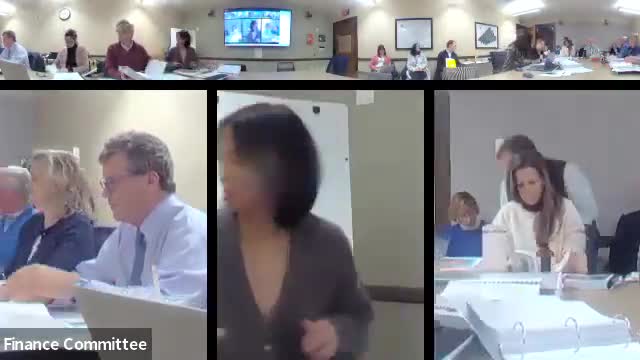Needham health and human services budget grows as ARPA-funded positions transition to operating funds
Get AI-powered insights, summaries, and transcripts
Subscribe
Summary
Finance Committee heard on Feb. 5 that NeedhamHealth and Human Services is moving three ARPA-funded positions into the operating budget, adding salary and technology costs and continuing grant-funded regional public health positions that may end in 2027.
NeedhamHealth and Human Services (HHS) outlined a proposed fiscal 2026 operating budget at the Finance Committeemeeting on Feb. 5, saying the net increase is driven by salary changes as three positions now partly funded by American Rescue Plan Act (ARPA) money shift into the town's operating budget and by rising technology replacement costs.
HHS staff said half of the three ARPA-funded positions are already in the operating budget for fiscal 2025 and will be fully integrated in fiscal 2026; the department listed an epidemiologist and a half-time public-health nurse among the roles supported by those grants. Staff said the overall HHS budget year-over-year increase is about 8.2% but noted roughly half of the salary increase represents the second-year phase of ARPA-funded positions moving into the operating budget.
Public-health staff told the committee they receive roughly $1.3 million annually in grants; aging-services grants total about $400,000 this year, and HHS uses a mix of revolving funds for programs such as senior transportation and immunizations. HHS representatives described rising technology-replacement costs after a townwide schedule set refresh cycles (for example, a four-year replacement cycle for laptops and staggered monitor replacements).
Committee members asked about the stability of several regional grant-funded positions that show contract end dates in 2027. HHS staff said those positions are funded through state ARPA pass-throughs and CDC public-health infrastructure grant (PHI/FIG) funding and that the state already has those funds in hand, but they warned uncertainty remains about funding after the multi-year grants expire. Staff explained that many new public-health roles are regional, meaning Needham hosts positions that also serve neighboring towns; if the grants end, Needham would have to decide whether to fund positions that provide only a fractional local benefit.
On youth services, staff said two clinicians funded through a ChildrenHospital host-community agreement have reduced the department's behavioral-health wait list; the town appropriated $400,000 initially and will receive $200,000 a year from the hospital once the associated facility opens and is occupied, staff said. HHS and youth-services staff said they will provide performance data in May on measures such as numbers served and wait-list changes.
On opioid-recovery funding, HHS told the committee the town planned to hire a recovery coach as a new, graded position after HR determined the role could not be added simply by adding hours to existing staff. Interviews were conducted the week of the meeting and staff anticipated a hiring recommendation by the end of that week; until the position is filled, the town has used a recovery coach for a limited number of hours, reducing near-term spending from the opioid-settlement fund.
Staff also described continuing prevention and substance-use services funded by a Massachusetts Bureau of Substance Addiction Services grant (a federal substance-use block-grant pass-through), noting that specific grants run on different cycles and some have been renewed for multiple years.
Ending: HHS staff asked the Finance Committee to consider full operating-budget support for positions currently grant-funded if federal and state funding is not renewed after 2027; committee members requested follow-up materials on grant terms and the May performance measures from the Children's Hospital arrangement.
